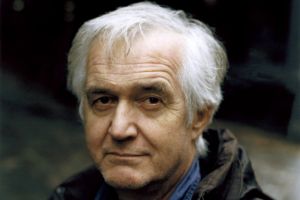Lecture
Henning Mankell
With one foot in the snow and one foot in the sand
Introduction: Manfred Lahnstein

Henning Mankell © Ulla Montan
Lecture of the writer
Born in 1948, Henning Mankell is considered Sweden’s most renowned writer since August Strindberg. He left school at the age of fifteen and in 1965 took up a job of production assistant at the theatre. Three years later he began to work as a director and writer, and became a best-selling author in the 1990s: his detective novels featuring superintendent Wallander, later adopted for TV, brought him international acclaim.
After a first trip to Africa in 1972 he dedicated several novels to that continent, among others “Chronicler of the Winds”, “Tea-Bag” and “I Die But My Memory Lives On”. Since 1986 Mankell has been director of the Teatro Avenida in Maputo, Mozambique.
As an inhabitant of two worlds, Europe and Africa, he is a dedicated campaigner against Aids. With his publication of the Memory Book by Christine Aguga, a young Ugandan mother suffering from Aids, he has shown the importance of this particular kind of narration: a moving testimony of a life soon to be extinguished, the utterance of one individual, and a record of the cultural vigour of a society. Mankell is concerned that “in our part of the world we don’t understand that these people need all our solidarity, and that they have a right to it.”
He is committed to Africa because “today we know all about how Africa is dying but nothing about how Africa lives.” Henning Mankell divides his time between Sweden and Mozambique.